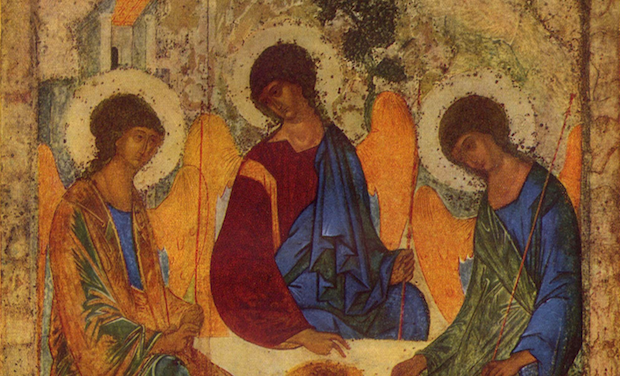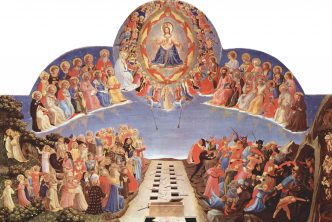
Now, the phenomenon, admitted on all hands, is this:—that great portion of what is generally received as Christian truth is in its rudiments or in its separate parts to be found in heathen philosophies and religions.
For instance, the doctrine of a Trinity is found both in the East and in the West; so is the ceremony of washing; so is the rite of sacrifice. The doctrine of the Divine Word is Platonic; the doctrine of the Incarnation is Indian; of a divine kingdom is Judaic; of Angels and demons is Magian; the connexion of sin with the body is Gnostic; celibacy is known to Bonze and Talapoin; a sacerdotal order is Egyptian; the idea of a new birth is Chinese and Eleusinian; belief in sacramental virtue is Pythagorean; and honors to the dead are a polytheism.
Such is the general nature of the fact before us; Mr. Milman argues from it,—“These things are in heathenism, therefore they are not Christian:” we, on the contrary, prefer to say, “these things are in Christianity, therefore they are not heathen.” That is, we prefer to say, and we think that Scripture bears us out in saying, that from the beginning the Moral Governor of the world has scattered the seeds of truth far and wide over its extent; that these have variously taken root, and grown up as in the wilderness, wild plants indeed but living; and hence that, as the inferior animals have tokens of an immaterial principle in them, yet have not souls, so the philosophies and religions of men have their life in certain true ideas, though they are not directly divine.
What man is amid the brute creation, such is the Church among the schools of the world; and as Adam gave names to the animals about him, so has the Church from the first looked round upon the earth, noting and visiting the doctrines she found there. She began in Chaldea, and then sojourned among the Canaanites, and went down into Egypt, and thence passed into Arabia, till she rested in her own land. Next she encountered the merchants of Tyre, and the wisdom of the East country, and the luxury of Sheba. Then she was carried away to Babylon, and wandered to the schools of Greece.
And wherever she went, in trouble or in triumph, still she was a living spirit, the mind and voice of the Most High; “sitting in the midst of the doctors, both hearing them and asking them questions;” claiming to herself what they said rightly, correcting their errors, supplying their defects, completing their beginnings, expanding their surmises, and thus gradually by means of them enlarging the range and refining the sense of her own teaching.
So far then from her creed being of doubtful credit because it resembles foreign theologies, we even hold that one special way in which Providence has imparted divine knowledge to us has been by enabling her to draw and collect it together out of the world, and, in this sense, as in others, to “suck the milk of the Gentiles and to suck the breast of kings.”1
***
This post is excerpted from Essays, Critical and Historical Vol. 12 by J.H. Newman.
- Newman, J. H. (1871). Essays, Critical and Historical (Vol. 2, pp. 231–232). London: Basil Montagu Pickering.






Nice save, Dcn Thomas! Just kidding, I know what you meant, and I agree — if anyone seriously thought the Church just went to a universal theology store and picked out what she liked here and there cuz it sounded good, nice or whatever, then he or she is just not very well informed at all.
Point of clarification: In my post (2/12/2019), “author” refers to “Milman” and not Newman.
The author obviously has not studied the theology all these religions or ancient Christianity, else he would not describe Christianity as a type of syncretism.
For example, it took the Church a few centuries to work out the doctrine of the Incarnation and the Trinity. If this was simply a borrowing of “doctrines” from other religions, then why the struggle? And why, in these disputes, were these other religions not mentioned in the large volume of documents produced by Church leadership and Church Councils? Of course, the religions of the world do have truth. And Greek philosophy helped to inform Christianity. Its influence is seen, for example, in the writings of St. Paul (e.g. Stoics). What is true is in no way in conflict with ancient Christianity. In this respect, yes, Christianity, did receive certain ideas. This is because many of these things can be known through reason. For example, the five classic proofs for the existence of God are found among Greek philosophers, which were eventually used in Christianity.
Regardless, if you examine what the Catholic/Orthodox Christians means when they say, “Incarnation” or “Trinity”, I think one will be hard pressed to find these doctrines among the religions of antiquity. Anyone with just a little theological and historical background and easily discover this.